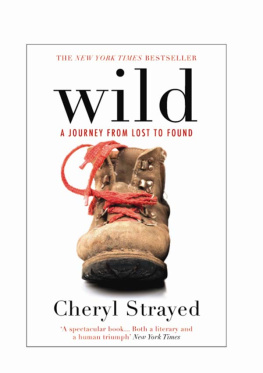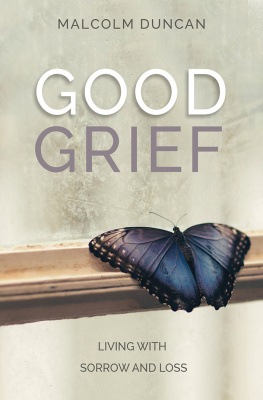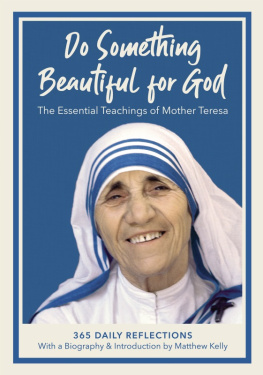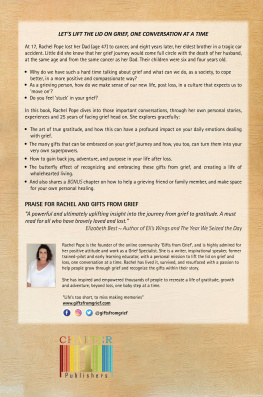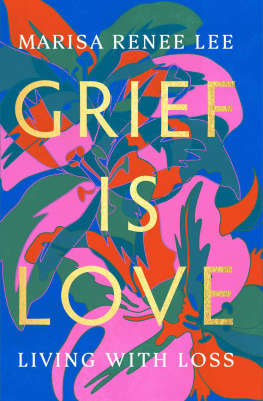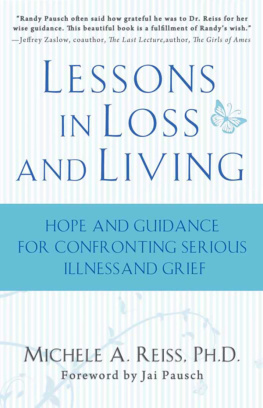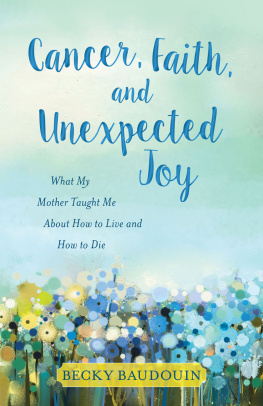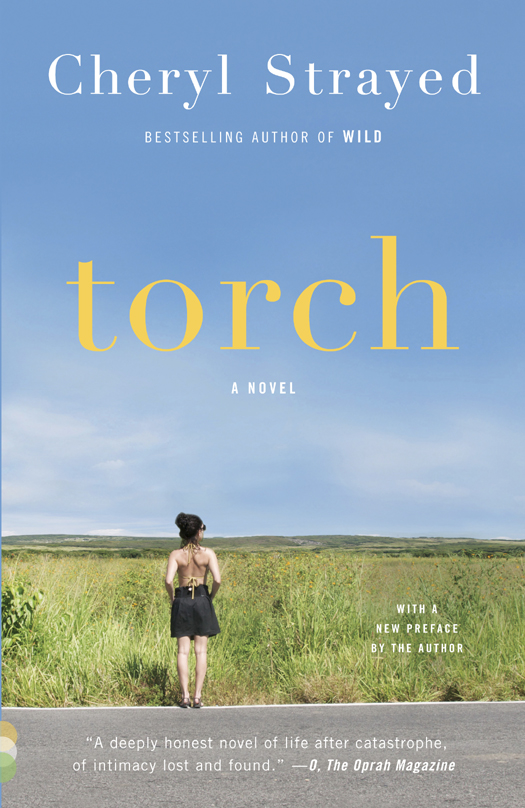TORCH
Cheryl Strayed
VINTAGE BOOKS
A Division of Random House, Inc.
New York
FIRST VINTAGE eBOOKS EDITION, OCTOBER 2012
Copyright 2005 by Cheryl Strayed
All rights reserved. Published in the United States by Vintage Books, a division of Random House, Inc., New York. Originally published in the United States by Mariner Books, a division of Houghton Mifflin Company, New York, in 2007.
Vintage and colophon are registered trademarks of Random House, Inc.
Cover design: Gabriele Wilson Design
Cover photograph Jeff Church/Gallery Stock/
Grateful acknowledgment is made to the following for permission to reprint previously published material:
Grove/Atlantic, Inc.: Excerpt from Late Fragment from A New Path to the Waterfall by Raymond Carver. Copyright 1989 by the Estate of Raymond Carver. Used by permission of Grove/Atlantic, Inc. Any third party use of this material, outside of this publication, is prohibited.
Random House, Inc. amd Curtis Brown,Ltd.: Excerpt from September 1, 1939, from Collected Poems of W.H. Auden by W.H. Auden. Copyright 1940 and renewed 1968 by W.H. Auden. Used by permission of Random House, Inc. on behalf of print rights and Curtis Brown, Ltd. on behalf of electronic rights. Any third party use of this material, outside of this publication, is prohibited. Interested parties must apply directly to Random House, Inc. for permission.
eISBN: 978-0-345-80562-1
v3.1_r2
F OR B RIAN J AY L INDSTROM
AND
I N MEMORY OF MY MOTHER ,
B OBBI A NNE L AMBRECHT ,
with love
Contents
Acknowledgments
I am grateful to Syracuse University, the Julia and David White Artists Colony, the Constance Saltonstall Foundation for the Arts, the Sacatar Foundation, and the Wurlitzer Foundation for the gift of time and financial support while I wrote this book.
A heartfelt thanks to all the people at Houghton Mifflin, whose hard work and passion helped bring this book into the world. I am especially indebted to my editor, Janet Silver, for her insight, brilliance, and kindness; to Meg Lemke, who guided me expertly along the way; and to Megan Wilson, publicist extraordinaire.
A deep bow to my agent and fairy godmother, Laurie Fox of the Linda Chester Literary Agency.
I couldnt have written this book without the encouragement and love of my friends and teachers, too many to name here. Special thanks to Paulette Bates Alden, Christopher Boucher, Arielle Greenberg Bywater, Mary Caponegro, Arthur Flowers, Lisa Glatt, Corrine Glesne, Sarah Hart, Aimee Hurt, Tom Kilbane, Gretchen Legler, EJ Levy, Emillia Noordhoek, Dorothy Novick, Salvador Plascencia, Lee and John and Astia Roper-Batker, George Saunders, Anne Vande Creek, Bridgette Walsh, and Devon Wright.
Im grateful to Karen Patch, Leif Nyland, and Glenn (Benny) Lambrecht for all those years together, and for being modern pioneers with me.
My deepest debt is to Brian Lindstrom, for everything and then some. For love and for life. For keeping the faith and carrying the torch.
PART I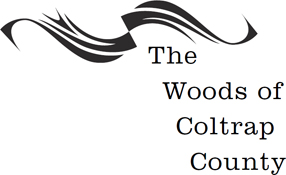
Yet it would be your duty to bear it, if you could not avoid it: it is weak and silly to say you cannot bear what it is your fate to be required to bear.
Charlotte Bront, Jane Eyre
S HE ACHED . As if her spine were a zipper and someone had come up behind her and unzipped it and pushed his hands into her organs and squeezed, as if they were butter or dough, or grapes to be smashed for wine. At other times it was something sharp like diamonds or shards of glass engraving her bones. Teresa explained these sensations to the doctorthe zipper, the grapes, the diamonds, and the glasswhile he sat on his little stool with wheels and wrote in a notebook. He continued to write after shed stopped speaking, his head cocked and still like a dog listening to a sound that was distinct, but far off. It was late afternoon, the end of a long day of tests, and he was the final doctor, the real doctor, the one who would tell her at last what was wrong.
Teresa held her earrings in the palm of one handdried violets pressed between tiny panes of glassand put them on, still getting dressed after hours of going from one room to the next in a hospital gown. She examined her shirt for lint and cat hair, errant pieces of thread, and primly picked them off. She looked at Bruce, who looked out the window at a ship in the harbor, which cut elegantly, tranquilly along the surface of the lake, as if it werent January, as if it werent Minnesota, as if it werent ice.
At the moment she wasnt in pain and she told the doctor this while he wrote. There are long stretches of time that I feel perfectly fine, she said, and laughed the way she did with strangers. She confessed that she wouldnt be surprised if she were going mad or perhaps this was the beginning of menopause or maybe she had walking pneumonia. Walking pneumonia had been her latest theory, the one she liked best. The one that explained the cough, the ache. The one that could have made her spine into a zipper.
Id like to have one more glance, the doctor said, looking up at her as if he had risen from a trance. He was young. Younger. Was he thirty? she wondered. He instructed her to take her clothes off again and gave her a fresh gown to wear and then left the room.
She undressed slowly, tentatively at first, and then quickly, crouching, as if Bruce had never seen her naked. The sun shone into the room and made everything lilac.
The lightits so pretty, she said, and stepped up to sit on the examining table. A rosy slice of her abdomen peeped out from a gap in the gown, and she mended it shut with her hands. She was thirsty but not allowed a drop of water. Hungry, from having not eaten since the night before. Im starving.
Thats good, said Bruce. Appetite means that youre healthy. His face was red and dry and cracked-looking, as if hed just come in from plowing the driveway, though hed been with her all day, going from one section of the hospital to the next, reading what he could find in the waiting rooms. Reading Readers Digest and Newsweek and Self against his will but reading hungrily, avidly, from cover to cover. Throughout the day, in the small spaces of time in which she too had had to wait, hed told her the stories. About an old woman whod been bludgeoned to death by a boy shed hired to build a doghouse. About a movie star whod been forced by divorce to sell his boat. About a man in Kentucky whod run a marathon in spite of the fact that he had only one foot, the other made of metal, a complicated, sturdy coil fitted into a shoe.
The doctor knocked, then burst in without waiting for an answer. He washed his hands and brought his little black instrument out, the one with the tiny light, and peered into her eyes, her ears, her mouth. She could smell the cinnamon gum he chewed and also the soap hed used before he touched her. She kept herself from blinking while staring directly into the bullet of light, and then, when he asked, followed his pen expertly around the room using only her eyes.
Im not a sickly woman, she declared.
Nobody agreed. Nobody disagreed. But Bruce came to stand behind her and rub her back.
His hands made a scraping sound against the fabric of the gown, so rough and thick they were, like tree bark. At night he cut the calluses off with a jackknife.


